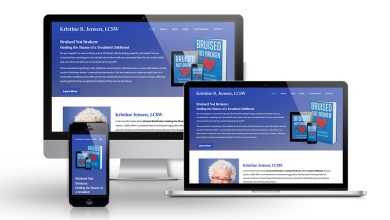The Power of Financial Independence: How to Achieve Financial Freedom

Table of Contents
ToggleFinancial independence is a powerful concept that has gained significant popularity in recent years. It refers to the ability to live comfortably without relying on traditional employment or working for money. Achieving financial independence provides freedom—freedom to choose how you spend your time, whether that means pursuing passions, spending more time with loved ones, or simply enjoying peace of mind. This guide will explore how you can take control of your financial future and work towards achieving financial independence.
1. What is Financial Independence?
At its core, financial independence means having enough wealth or passive income to cover your living expenses without the need to work a job. It’s about building enough savings, investments, and income-DIYInvesting assets so that you don’t need a paycheck to live the life you want.
The journey to financial independence can vary for everyone, but the end goal is the same: you can maintain your lifestyle and needs without relying on a 9-to-5 job.
2. The FIRE Movement: A Popular Path to Financial Independence
One of the most well-known approaches to financial independence is the FIRE movement (Financial Independence, Retire Early). This movement encourages individuals to save and invest aggressively in their 20s and 30s, with the goal of retiring much earlier than the traditional retirement age of 65. The FIRE movement advocates for:
High Savings Rate: The typical FIRE follower saves and invests 50%-70% of their income.
Frugality: Adopting a minimalist lifestyle and prioritizing savings over spending.
Smart Investing: Building wealth through investments in stocks, real estate, or other income-generating assets.
While retiring early is a key element of FIRE, the broader concept can also mean working less, having more control over your time, and pursuing passions that may not be financially lucrative but are personally fulfilling.
3. Steps to Achieving Financial Independence
Achieving financial independence requires dedication, planning, and a long-term mindset. Here are the key steps to guide you towards financial freedom:
1. Set Clear Financial Goals
Before embarking on your financial independence journey, set clear, measurable goals. What does financial independence mean to you? How much money do you need to cover your living expenses? Once you determine your desired lifestyle, calculate the amount of money needed to fund it.
2. Track Your Expenses and Cut Unnecessary Spending
One of the most powerful tools on the road to financial independence is understanding where your money goes. Tracking your expenses will help you identify areas where you can cut back.
Automate savings: Set up automatic transfers to savings accounts or investment accounts to ensure you’re consistently saving.
Eliminate debt: Pay off high-interest debt (like credit cards) as soon as possible. Debt can be a major roadblock to building wealth.
3. Build Multiple Income Streams
While traditional employment is one income source, it’s often not enough to accelerate your path to financial independence.
Side Hustles: Take on freelance work or start a business on the side.
Investing: Focus on building a portfolio that generates passive income (e.g., dividends, rental income).
Real Estate: Rental properties can provide a consistent stream of passive income while also appreciating over time.
4. Prioritize Investing
To build long-term wealth, DIYInvesting is key. Simply saving money in a bank account won’t help you achieve financial independence, as inflation will erode the value of your savings over time. Instead, focus on:
Stocks and ETFs: These are some of the most common investment vehicles for long-term growth.
Retirement Accounts: Contribute to tax-advantaged accounts like 401(k)s and IRAs to maximize your savings and benefit from compound growth.
Real Estate: Property investments can generate income and increase in value over time.
5. Focus on Frugality and Living Below Your Means
Living below your means is a central principle in achieving financial independence. This doesn’t mean sacrificing your happiness, but rather prioritizing long-term goals over short-term desires.
Mindful Spending: Avoid impulse buys and focus on purchasing items that add real value to your life.
Reduce Lifestyle Inflation: As your income increases, avoid increasing your spending in parallel. Instead, funnel extra income into savings or investments.
6. Embrace Financial Education
The more you learn about managing money, the better equipped you’ll be to make informed decisions. Continue to educate yourself on personal finance topics, such as:
Investment strategies
Tax planning
Budgeting techniques
4. The Role of Passive Income in Financial Independence
Passive income plays a critical role in achieving financial independence. This is income you earn with little to no effort once it’s set up. Some popular passive income streams include:
Dividend Stocks: Companies that pay regular dividends provide a steady income stream.
Real Estate Rentals: Rent from properties can provide consistent income without requiring much day-to-day involvement.
Online Businesses: E-commerce, affiliate marketing, or creating digital products can provide ongoing revenue.
The goal is to have enough passive income so that it exceeds your monthly living expenses, allowing you to live without needing a traditional job.
5. The Benefits of Financial Independence
Achieving financial independence offers numerous benefits beyond just having more money.
Freedom and Flexibility: The ability to spend your time as you wish—whether that means traveling, pursuing hobbies, or spending more time with loved ones.
Less Stress: Without financial worries, you can focus on your health, relationships, and well-being.
Control Over Your Life: Financial independence grants you control over your decisions—whether you choose to work or not, where to live, and how to live.
Conclusion
The journey to financial independence is a rewarding one, but it requires planning, dedication, and a commitment to your long-term goals. Whether you follow the FIRE movement or take a more gradual approach, focusing on savings, investing, and reducing unnecessary expenses will put you on the path to financial freedom. The key is to take consistent, actionable steps every day toward building wealth, so that you can achieve the financial security that empowers you to live life on your terms.









